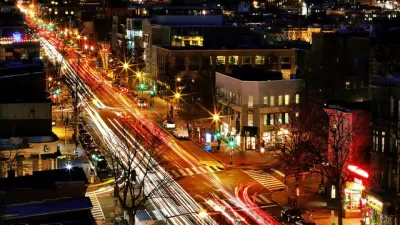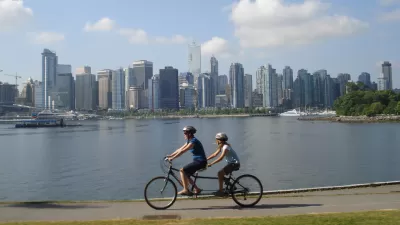Even with ambitious electric Vehicle adoption, the United States must reduce vehicle miles traveled by 20 percent before the end of the decade to limit warming to 1.5°C, according to new research by the Rocky Mountain Institute.

Brian Yudkin, Duncan Kay, Jane Marsh, and Jackson Tomchek writes for the Rocky Mountain Institute:
Beyond the climate consequences resulting from transportation emissions, this high baseline of driving has given rise to a range of societal ills in American cities. These include inequitable access to destinations, disconnected communities, and the nearly universal frustration of congestion. Our highway system has served to segregate populations, heightening long-standing injustices, while high costs of living and limited housing options continue to facilitate sprawl away from city centers.
RMI analysis indicates that the United States must reduce VMT by 20 percent before the end of the decade to limit warming to 1.5°C—and this remains true even under ambitious EV adoption scenarios.
The article continues to details some of the interventions that can reduce vehicle miles traveled (VMT), like pricing signals, ending highway expansions, and transportation demand management and provides an infographic to illustrate the effects of some of those interventions.
FULL STORY: Our Driving Habits Must Be Part of the Climate Conversation

Planetizen Federal Action Tracker
A weekly monitor of how Trump’s orders and actions are impacting planners and planning in America.

Canada vs. Kamala: Whose Liberal Housing Platform Comes Out on Top?
As Canada votes for a new Prime Minister, what can America learn from the leading liberal candidate of its neighbor to the north?

The Five Most-Changed American Cities
A ranking of population change, home values, and jobs highlights the nation’s most dynamic and most stagnant regions.

San Diego Adopts First Mobility Master Plan
The plan provides a comprehensive framework for making San Diego’s transportation network more multimodal, accessible, and sustainable.

Housing, Supportive Service Providers Brace for Federal Cuts
Organizations that provide housing assistance are tightening their purse strings and making plans for maintaining operations if federal funding dries up.

Op-Ed: Why an Effective Passenger Rail Network Needs Government Involvement
An outdated rail network that privileges freight won’t be fixed by privatizing Amtrak.
Urban Design for Planners 1: Software Tools
This six-course series explores essential urban design concepts using open source software and equips planners with the tools they need to participate fully in the urban design process.
Planning for Universal Design
Learn the tools for implementing Universal Design in planning regulations.
New York City School Construction Authority
Village of Glen Ellyn
Central Transportation Planning Staff/Boston Region MPO
Institute for Housing and Urban Development Studies (IHS)
City of Grandview
Harvard GSD Executive Education
Regional Transportation Commission of Southern Nevada
Toledo-Lucas County Plan Commissions





























